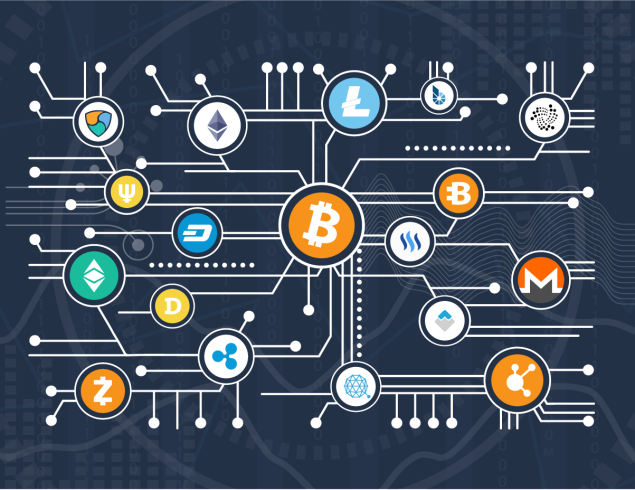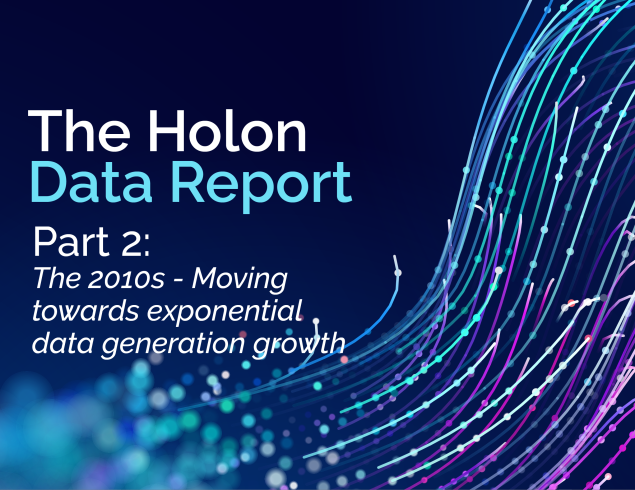Holon Innovations, Filecoin and your house as an NFT
David Fedirchuk: Can you tell us your background and how you ended up with Holon?
Jonathan Hooker: I started with Holon around about two and a half years ago. Before that I was actually consulting at the University of Newcastle and a large education blockchain project. And before that, I was just investing my own capital into the blockchain space. But before that, I spent 15 years in software. So I’ve been all over the world and worked for the world’s biggest banks, and tech companies building software. So yeah, I’ve been a geek for a long time.
DF: Can you remember the very first time you heard the term Web 3.0 or Bitcoin?
JH: The first time that I heard about Web 3.0 or Bitcoin was years ago, around about 2014, a friend asked me about Bitcoin, and asked me had I read the Bitcoin white paper? I said, no, but from that moment, I started reading and started learning. And it probably took me a few more years to kind of really realise what was happening. So in 2016, I stopped working for the company I was working for, and starting diving into the blockchain space. And, you know, Web 3.0 is a really tough subject. To get it I mean, it’s got lots of different things in it like Game Theory, deep blockchain technology, global governance, all these kinds of things. So, you know, nobody’s a master of Web 3.0, and I’m still learning. But today, it’s just so amazing to see this space flourish.
DF: Many people have heard the term Web 3.0, but actually have absolutely no idea what it is. Can you give us the basics? What exactly is Web 3.0?
JH: Yeah, sure. So, look, Web 3.0 can be interpreted in a lot of different ways. But I really think that is, you’ve got Web 2.0. So you’ve got Facebook and Google and, and you kind of use this platforms, and they give you all these superpowers, like connect with your friends and talk to them. And maybe you even send them payments. So you kind of need these third parties in between you and your friend, to help facilitate these superpowers. But in Web 3.0, you and your friend don’t need that person in between. So you can communicate directly with that person without anybody else having to be part of the chain. I can send money to you, and nobody’s in the middle, I can send messages to you, and nobody’s in the middle. You don’t need it to go to somebody, everybody can see it on this distributed ledger, what is happening in real time. So it’s really the removal of third parties out of these kinds of supply chains or money chains and things like that.
DF: People will see Holon Innovations on the Holon website. What do you mean by Holon innovations?
JH: Holon innovations is the Web 3.0 infrastructure arm to Holon. If you think about the asset management side, they’ve got all these amazing funds. And they’re really investing in these Web 2.0 businesses, which are scaling globally. But ultimately, the next iteration of these Web 2.0 companies are going to be Web 3.0 protocols. And that’s important to Holon and our customers to understand what kind of innovation is coming down the pipeline. One of our first biggest infrastructure pieces is Web 3.0 Filecoin data storage. So we’re building out data storage in Sydney. And we’re connecting that storage to the global protocol, the global blockchain, and we can now offer clients data storage around the world. We’ve got clients in Switzerland, the US and more and we’re already one of the largest storage providers on the network. Some of our clients are the biggest data producers on Earth as well, so it’s super exciting to help them through this journey, to really understand what how Web 3.0 is going to change that technology stack.
DF: And what is Filecoin?
JH: So if you think about the Web 2.0 world like Amazon and Google, when you store your data with them, you put it up into the cloud, and it sits there, right? But how do you know that they haven’t moved it to another place? How do you know that they don’t have another third party storing it for you? How do you know that it hasn’t been opened? All these things you don’t really know about your data. So with Filecoin, because of the blockchain, you get all these verifiable things, and Zk-SNARKs (Zero-Knowledge Succinct Non-Interactive Argument of Knowledge), which is a big term, but a fancy term for a lot of maths that proves that something hasn’t been opened or moved and the integrity of the data is really perfect. We see the data market growing exponentially over the next 20 years. And we see Web 3.0 emerging, with Filecoin as a big global player, that could be as big as Amazon, Google and the others combined!
DF: So if I’m someone who’s generating data, a company or a person, what exactly, on top of the price are the reasons for going with the Filecoin protocol?
JH: The unique selling proposition of Filecoin is not just that you’re putting your data into the global market, and you’re getting the cheapest cost for the service that you need, but also the verifiability of the Filecoin blockchain. So the blockchain keeps all 4,000 global storage providers connected, and it verifies that it has your data stored, every 24 hours. You can verify that it hasn’t been moved, that the integrity is still high, and all these kinds of things. And it really gives people peace of mind when they take out a service-level agreement (SLA). You know, today, when you take an SLA out with Amazon, you don’t really know anything, right? They just have a bit of paper, and you have to believe that they’re going to do it. Well, instead why don’t you know, and verify – and verification comes built into the Filecoin network.
DF: I remember you saying something like if your NFT is not stored on the Filecoin network, do you actually own it?
JH: I think NFTs are going to change the world in a profound way. Like I recently bought a house, I had a lawyer in the middle. And it was a very painful process, But, if my house was an NFT and I bought it off the previous owner, we didn’t need that lawyer in between. Because I can, from my wallet, I can send the money to you. And the contracts – smart contracts – just convert at execution. The best thing that we can do is I have a wallet, you have a wallet, and then we can convert in real time. So imagine a house is represented as an NFT. And you’re going see this all over the place. You’re going see shares and objects and more as NFTs. So we don’t need the middleman to kind of take that revenue clip in between and we get more transparency on the movement from me owning the NFT, to you.
DF: And this is where Filecoin comes in.
JH: Exactly.
DF: To finish, can you update us on How Holon Innovations is tracking and your plans for 2023?
JH: So today, we have 26 petabytes installed at our Western Sydney facility. We’re now looking at our next scaling phase where we’re going to instal 60 petabytes of data storage in Melbourne. Hopefully all that will be filled up with client data by Q1, Q2 2023. And then we’re going to go much, much bigger. We’ll probably instal 200 petabytes in two more locations next year, which is going be great for our customers, and the business.
DF: Crystal ball time: Filecoin in 10 years, is it a household name? Where do you see Filecoin?
JH: Ultimately, I just see it underpinning the Web 3.0 revolution that’s happening. But we’ll also see Filecoin underpinning NFTs. So as houses, stocks, and physical experiences are bought and sold using NFTs. I see IPFS and Filecoin underpinning that whole technology stack. So I really see companies plugging in their infrastructure to Web 3.0, and I think I think Filecoin is going to be as big as Amazon, Google and the others put together.
Disclaimer
This article has been prepared by Holon Global Innovations Pty Ltd (ACN 635 014 756) (“HGI”). The information provided in this article does not constitute general or personal financial product advice. Holon Global Innovations Pty Ltd and Holon Investments Australia Limited (ABN: 45 648 884 164, AFS Licence No: 532669) are wholly owned subsidiary of Holon Global Investments Limited. HGI is a Filecoin (FIL) Storage Provider and is positioned as a major player in the FIL decentralised data storage arena for Asia Pacific. FIL Storage Providers are rewarded in FIL for the provision of data storage capacity.





